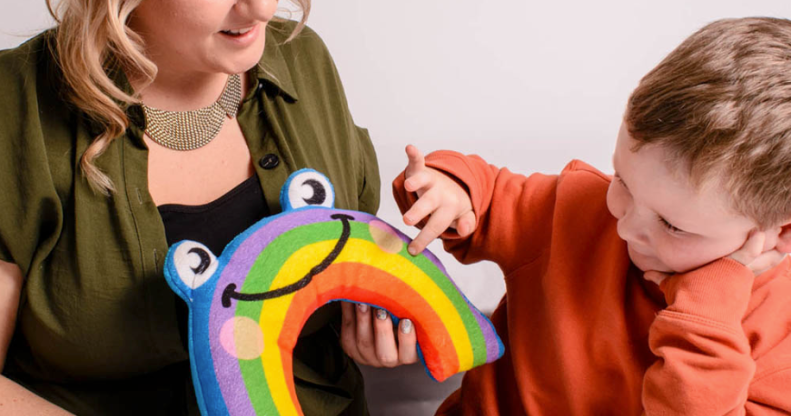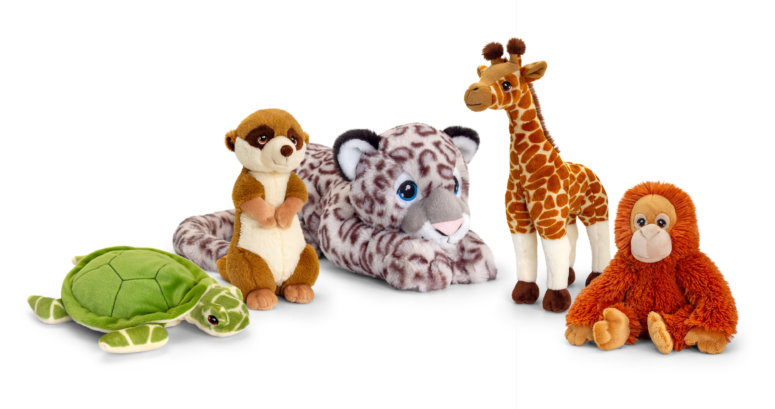Toy company introduces range of gender-neutral and LGBT-inclusive toys, including an adorable rainbow called Archie

Archie the rainbow ‘is for everyone, as all toys should be’ (Eduk8)
A London toy fair has revealed a range of gender-neutral and ‘socially conscious’ toys that are set to hit the shops in 2020, including an adorable LGBT+ rainbow named Archie – pun fully intended, we assume.
The colourful plush toy is the star of The Mark Makers early reading range of books and soft toys, made by Eduk8. He comes with a colouring book that teaches children ‘how to use curves’, and he also has a pal called Lionel, a soldier who prefers straight lines.
It’s a sign that Britain’s top toy manufacturers are becoming more socially conscious as they gear their marketing towards a more progressive generation of parents.
“Archie’s a boy and he’s a rainbow. There’s now more to the LGBTQ+, you can add an R!” Eduk8 spokesperson Sabrina Weddle told the Daily Mail.
“It’s for everyone, as all toys should be,” added The Mark Makers author Rachel Fay.
The annual toy fair in Olympia, Kensington, is the UK’s biggest toy exhibition and showcases more than 270 companies to buyers, retailers and the wider toy industry.
“It’s encouraging a lot of our exhibitors are no longer targeting towards their products towards boys or girls,” a spokesperson noted.
As well as many gender-neutral and LGBT-friendly toys, the exhibition also included a range of eco-friendly plushies to teach children about conservation and the environment.
The designer, Keel Eco, makes the cuddly toys out of recycled plastic bottles to raise awareness of the animals most under threat from plastic pollution. Kids can choose from a fluffy orangutan, a hawksbill turtle, a blue whale and many more.
The toys start life as plastic pellets which are shredded to create yarn that becomes fabric. To make them 100 per cent sustainable, recycled cotton is used for the eyes and recycled glass beads are used for the body.
“Creating fabric in this way is 59 per cent less energy than making virgin polyester,” said sales director Steve Cox.
“The great thing is that kids are more eco-aware than the people who are selling it. The reaction from the kids has been so good.”


